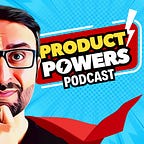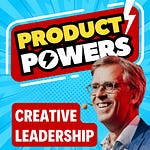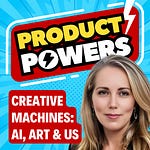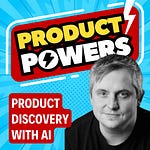In this episode, we discuss what tools you need to peak your career. While possessing the necessary skills and expertise is undoubtedly crucial in any professional setting, this episode unravels the truth that skills alone may not guarantee career progression.
Key topics covered in this episode:
👉🏽 The importance of nurturing connections with coworkers
👉🏽 Managing the egos of colleagues
👉🏽 The art of self-promotion in a competitive environment
Laura Chattington
Founder of Activate My Career Live.com, Laura has nearly 20 years’ experience of directing multi-million-pound global communications accounts, managing multi-disciplined teams and communicating up to c-suite level executives. Specialising in presenting and influence, Laura is a master of Neuro Linguistic Programming (NLP) and certified coach, having trained with one of the two co-founders. Laura has delivered and facilitated events and training sessions to hundreds of people around the world including London, Lisbon, Singapore, Geneva, and South Africa. A member of Toastmasters International, the world’s largest public speaking organisation, Laura has delivered speeches to audiences for the last 15 years and regularly competes in competitions. As well as individuals, she has trained teams from companies including Oracle, Deloitte, IBM, Facebook, Social Finance & NHS. ----- If you feel stuck, frustrated or like your career is plateauing ... even though you have spent years working hard... and YOU KNOW you have all the experience and skills to be much further ahead... I know how you feel. My name is Laura Chattington and I specialise in equipping professionals with an outside-the-box approach to end the plateau in their careers and initiate fast progress. When being made redundant after delivering a big project successfully I recognised my professional competency, experience and putting the hours in wasn't enough to move my career forward. A new path began and I discovered how to find my voice, show up and confidently communicate, influence others and become recognised for my efforts. If you're ready to stop your career plateauing and make progress faster before running out of time, making the impact you want in your professional and personal life, go ahead and join free masterclass now on the link.
👉🏽 Join the Masterclass: Click Here
👉🏽 LinkedIn: Click Here
🔥 Our Sponsors: How do you know where to invest your efforts when helping your Agile teams? You could simply ask them, but what if you need a more scalable and robust approach? One platform that I personally use and recommend is Comparative Agility. It has the world's largest Agile maturity index with over 4m data points from over 14,000 organisations. You can try it out completely FREE at the following link, and be sure to let me know your thoughts:
⚡️ In each episode, Paddy Dhanda deep dives into a new human Superpower and practical advice on how you can apply it immediately.
👉 Sign-up to Newsletter: https://www.superpowers.school/subscribe
👉 YouTube: https://www.youtube.com/c/paddydhanda/
★ BUY ME KO-FI ★
If you enjoy the podcast, then you can donate a small amount here as a token of your appreciation: https://ko-fi.com/paddydhanda
Transcription:
[00:01:03] Paddy Dhanda: Thank you for joining us for another episode of the Super School podcast.
Add on today's episode, I have. A lovely guest who is the founder and trainer at Activate My Career Live. She and I had a conversation briefly before this episode and I was really intrigued by the work that she's doing. And I think anybody who's looking to find out some of the. I guess deeper secrets about how you can get the most out of your corporate career.
She's the person to talk to, so I thought I'd bring her along onto the show today. So welcome to the show, Laura Chudon.
[00:01:42] Laura Chattington: Hi. Hi. Thank you for having me and thank you for that lovely introduction, Patty. I appreciate being here.
[00:01:48] Paddy Dhanda: Ah, you're welcome. Laura. I have a thing about backgrounds and I was looking at your background and it's very minimalistic.
So for anyone that is watching the video version of this, we'll notice it's very minimalistic, but I think you can tell a lot about even the one or two things that people have behind them. So you have there a Tate gallery. Picture What? What's that all about?
[00:02:11] Laura Chattington: It's a Peter, Mr. Hockney, Peter Blake, and I've actually got lots of pictures that I've collected over my lifetime.
And it's funny actually, I've got backgrounds on video. You spend looking at what people got and what's in their background. And I've gone from lots of things in my background, nothing in my background to, actually, this is one of the favorite pictures I own.
And I just really like it.
[00:02:38] Paddy Dhanda: So Laura, on this episode, what superpower would you like to bring?
[00:02:43] Laura Chattington: I would like to bring the superpower to give people the confidence and the tools that they need to really peak their career and truly perform at their best.
That is my superpower and that is what I'm looking to help my clients with is really be able to shoot for the stars, perform at their best, and accelerate their career.
[00:03:06] Paddy Dhanda: Oh, fantastic. And I think probably every single person listening to this episode will connect with that because I'm sure we are all quite passionate about our career.
So, if anybody can help us strive and get better and get the most outta that career. I think that's invaluable. So Laura, I'm sure you weren't doing this as a kid. So I would love to know a little bit about you and maybe some of your early childhood. What's shaped your thoughts over the years
[00:03:36] Laura Chattington: that far back?
Actually I dunno if I should admit my early childhood on a podcast, but I had quite a colorful childhood and teenage Time. And without going into many details, I actually didn't go to school that much. I certainly hadn't found what I was born to do other than my interest in my friends and my social life.
And believe it or not, long story short I ended up. My mother was a teacher and I ended up doing A Levels, I think of my friends. I was the only one, and I proudly got. Two, season two E, which was awful, but actually got some, and it was at that time when the internet was becoming mainstream.
I'm that old and I actually, and my mother who was worried that I was gonna end up in the gutter, I think was keen for me to. Go to university and I ended up blagging my way in through an interview onto an accelerated degree course in computer science because at the time if you were female and you had two heads and six arm, they would've let you on.
No matter what your level results were. So I ended up, and it was the first time I had found something in life that I was really interested in. And I'd come off the back of being a delinquent teenager and then really focused on my degree and worked extremely hard and came out with a computer science degree.
And actually at the time, again, I'm showing my age. It was before Google and I was a software engineer and the coders were kind of stuck in a dark room, hoods up. No one spoke to them. And I could speak to them and I obviously work with them, but actually I could also talk human as well as, Software, which was a very unusual skill back then.
I mean, it still is reasonably rare, but back then there was literally nobody who bridged that gap and I was female again, that was really unique. I think on my degree course I was probably one of four females of 200 or something like that. It was really not normal.
And so I ended up becoming the kind of conduit, I guess the communication conduit between the tech and the business. And I was very interested in business and I ended up. Working and directing big projects quite early in my career because I had that understanding of both worlds.
And that's kinda where I started getting into. Human communication and influence. I started becoming very interested in the fact that you could communicate and influence and present, and I had some bad experiences and I wanted to find out how to do it. And I remember there was one particular incident.
Sort of very early on in my career and I remember getting called into my boss's office and sitting there feeling like, sitting on my hands feeling like a sort of teenager who wasn't quite comfortable and trying to look like I was totally in control and I knew what I was doing.
And he started saying to me we're sorry, but actually we're gonna make 20 people redundant and you are one of them. And I remember thinking, oh, I've just worked my backside off for two years delivering this core project and now you're making me redundant.
And actually they kept this other guy, James, he was kind of my counterpart and I did most of the work and he seemed like he wasn't doing as much work as me. And I remember getting that post being made redundant. I remember getting to my parents' house cause it was around Christmas cuz you get made redundant just before Christmas cause of the tax year.
If anyone watching this or listening to this, that is the kind of where companies make people redundant. And I remember sitting at my parents' house and everyone's chappy and happy and celebrating, and Christmas is coming. And I remember feeling quite desperate because I'd done all this work and had ended up being made redundant and I didn't know what I was gonna be doing.
And I remember walking around my parents' garden and. Sort of thinking through why did James get, he and I didn't? Because I was the one doing all the hard work and I was like, he's not smarter than me. He doesn't have any more experience than me. He doesn't have anything different to me. And then it occurred to me that actually there was a difference between how he did his job and how I did my job. And actually it was a real light bulb moment for me in my career. And I thought he's not doing enough work, but actually what he was doing, As he was developing the relationships with the senior team, he'd spent time talking to our boss. He'd spent time dropping into offices and things like that, whereas I'd spend all my time working hard and getting the project delivered, and it was a kind of quite a pivotal moment where I realized that actually to get ahead in your career, you need to spend time and develop.
Skills and use tools that enable you to do that communication part and build those relationships. And at that time I went. Oh, I'm slogging my time out here focused only on the work and not doing anything else, and it really had an effect on me. And at the time I remember seeing an email about neurolinguistic programming, a course running on neurolinguistic program.
And I come across that earlier in my life. So I went off and did that. With one of the two co-founders. And a friend of mine had also recommended that I went to Toastmasters as well, because I'd had this presentation, which was like, I'm sure everyone's had one of these presentations where you're just like, oh, I want the ground to swallow me up.
It was awful. And so I ended up, Going down that sort of road of developing communication and influencing skills and then bringing them back into the workplace. And actually at the time I hired coaches to help me apply it back into the workplace. And what I noticed as time went on was that you don't actually need all of.
Tools and you don't need to be a master of N L P and you don't need to be a distinguished Toastmaster actually. You just need a set of tools that you can apply in the workplace. And that's where I've ended up in a non-straight line journey.
[00:10:47] Paddy Dhanda: Ah, fascinating. And I think we all know a James or two.
In our sort of careers and we come across them. I remember my good friend Phil. Phil and I started as graduates way back. And Phil, really smart guy. I've actually had him on the podcast as well. He's phenomenal. But Phil probably didn't work as hard as the rest of us. And I remember there was myself and a couple of other graduates and.
We would be slogging away. Exactly what you were saying there, Laura. We were software developers and it was just ironic that Phil ended up accelerating his career. Before we knew it, he was working in the CIO's office of a big global telecoms organization, which is who we work for, and we just couldn't understand it.
And we put it down to he just had the gift of the gab. But there was more than that. Surely it's not just him being able to crack a few jokes and being able to make a few people laugh. There has to be more, and I'm really intrigued to understand a bit more about. Mm. Building those relationships and how you go about that.
So I'd love to know from you, Laura, what are some of the ways that if somebody was at home thinking about their current situation, they could go about this sort of approach that you've mentioned?
[00:12:11] Laura Chattington: Yeah. And as a fellow software engineer I'm not criticizing in any way software engineers not being able to communicate.
It's just like your friend, they are doing something different. And I think it's also important because depending on where you are coming to this, some people are outwardly going and some people are not. Maybe more inward, facing and it isn't about personality.
You are right. I think people with very Confident outward personalities perhaps do this naturally. So your friend, develop those relationships and develop those conduits of being seen in the workplace. And I think the first key thing to do is to really decide
that you are actually going to do this, make a decision that this is where I'm going to aim for . I was the same. I was working, we were all delivering on our projects, but we weren't putting this extra 20% in our working week. So I think that the first step is to decide on.
Where do you wanna get to? And thinking through who do I have to be that person at that level? What are some of the attributes? What are some of the behaviors? What is it your friend was doing that you weren't doing well? He was communicating them, he was being visible like every human being.
Those senior stakeholders in your workplace, they're human too. And they're not thinking about you and your career path and what you are doing on a daily, weekly basis. You need to be visible to them. So you need to go to them and talk about the value that you bring and the experience that you bring.
So I think before you start thinking about, oh gosh, how do I do that? How do I communicate? I think you really need to decide that you're gonna add this into the scope of your weekly work because it's a process that you build on and it compounds over time. So that's the first thing I would say that people should do.
I. The second thing is communicate, and this is obviously key I was good at communicating. It wasn't that I couldn't communicate, but actually there's a bit there about how do you communicate and present yourself and put yourself forward and promote yourself in the company in a way that A you feel good about doing it, and b, that it is in a way that really influences the people that you're talking to. We all know those people you're go into a meeting and they're like talking about him, and you're like, Ugh he's talking about himself again, or she's talking about him.
We don't wanna listen to that. But there are ways of. Promoting yourself in those conversations and in the workplace that you want to get those senior stakeholders who are making decisions about who's going on projects or who's coming into the c o office, and they're gonna be thinking about the people that are front of mind and present for them. So you need to be able to communicate the value you bring to the workplace, to the people that are gonna be making the decisions about who's on which project in a way that is appealing to them and positioned in a way that they're like oh I'm gonna get Patty on this project cause I know he can do X, Y, and Z, and that's exactly what I need.
And again, remembering that those senior stakeholders, they're humans too. And the way you can influence and communicate with them in a way that is gonna resonate with them is what is a priority for them. Being visible on a regular basis is really key. To give you an example people say, oh yeah of course I've worked with clients and they're so focused on not to get delivering their work, that they won't join the drinks at the end of the week with the senior stakeholders. They won't be. Joining the case study discussions about certain projects and it's really thinking, I've gotta put time in my diary.
To be visible in the workplace. And then I need to be able to communicate about myself competently and tactfully so that I just become front of mind. And that's really about working, moving clients through this process, putting together an activation plan. It's like a personal marketing strategy, putting into place a plan so that you can go, right, I'm gonna do this, and this is when I'm gonna do it, and this is who I need to speak to and this is what they're interested in and this is how I can bring value into that conversation.
So it's three steps, decide, communicate, and activate. And I think it's about putting that 20% of time in your diary every week. To keep developing the relationships that you want to develop.
[00:17:08] Paddy Dhanda: How do you measure progress in that journey? Because you could be having conversations with all the right people, but then how do you know if this is going in the right direction?
[00:17:21] Shure MV7-1: Before we continue, here's a quick word about the sponsors of this show. So your execs have decided to go through a big transformation to change your ways of working. They've restructured the teams, invested in new tools and techniques, but there's one small problem. How do we measure our improvement consistently across the organization without falling into the trap of relying on what we call vanity metrics?
Yep. Those KPIs that look great on paper, but just aren't very useful. I want to introduce you to Comparative Agility. It's the world's largest continuous improvement platform that you've gathered over 4 million data points from thousands of organizations so that you can benchmark your maturity against the world index, or compare yourself to your industry.
They have a wide range of different surveys covering topics such as business agility, psychological safety, DevOps, employee engagement, and many more. What makes these surveys so valuable is that they've been written by respected thought leaders who are experts in their field, such as Mike Cohen from the World of Agile, all the way through to Dr.
Amy Edmondson
so whether you are a coach, team manager, or a transformational leader, be sure to check out comparative agility to help implement a culture of continuous improvement. Best of all, you can test drive the platform completely free to find out more. Check out the link in the show notes.
[00:18:52] Shure MV7-2: Now let's get back to the.
[00:18:56] Laura Chattington: I think the obvious ones are promotion, getting jobs, getting pay rises, and actually having the right relationships. I'd be measuring against those things. Lots of times I'm working with clients and they're like I know that other people are getting paid more than me.
How do I get to that level? How do I ask for that salary increase? How do I get the promotion? How do I line myself up to get to? It's very tangible things at the end of the process, and I guess continually. Throughout your career, most people wanna get paid more money.
They wanna get promoted or they wanna change jobs or they actually want to say, okay, at the start of this process, I had relationships with my boss and occasionally my boss's boss, but I know that if I invest time and resource and I map the relationships across the company and externally to the company.
They are gonna be valuable for me, maybe not today or next week, but certainly six months down the line. We go through cycles in companies and you have your end of year review. And those conversations are sometimes very much, how have you done, you've done this well, you've done that well, and so said this about you.
And those kind of conversations. But actually using some of those pivotal meetings and maybe putting quarterly reviews in with your. Boss to say, look, I wanna get there. That's where I'm going. So how do I do that? And having a very specific plan in place to do that. So the success factors are quite tangible in the ends.
I guess the slightly less tangible one is feeling like people work so hard, we make such a commitment of our time. And you can be dealing with people that maybe you don't want to be dealing with so much. Maybe you are focused on work that you are good at, but actually you don't love doing, all those things.
So actually feeling like there is a purpose and a point to the work that you are doing on a regular basis.
[00:21:06] Paddy Dhanda: Laura, imagine I'm one of those stakeholders and you are in a role where you are looking to. Create that visibility across the senior stakeholders. What are some of the examples of conversation that you could come up with?
Because I suspect it could be quite daunting for somebody to. Hey, I've gotta now make the effort to speak to someone more senior or somebody who, I don't really have that relationship, rapport.
[00:21:33] Laura Chattington: So how do you go about that? That's very common for everyone, I think.
And depending on who you are talking to and where you are talking, it can be very intimidating. You might be going into meetings with those people and it can be very intimidating. I've certainly been in a few, in my lifetime. I think that there are two things that people can take away and implement without getting into too much detail.
So number one is to think about what is it that senior stakeholder. Cares about the most. What are the things that senior stakeholder cares about the most? Now, as humans, we go into our meetings and our interactions, and we're thinking about our perspective of the world, right? You're normally going into those senior stakeholder meetings, having to report on a project or.
Update on progress or ask for more budget or ask for more resource or things like that. And you'll come into that conversation from the hard work and the world that you've come from, cuz that's the natural human thing to do. But actually thinking about what is it that they are particularly interested in as opposed to what are you interested in? At a random guess, most senior state, depending again on how senior they are, they're gonna be interested in finance, obviously profit and loss and things like that. That's an obvious thing to do. The other thing that isn't so obvious some of the time is reputation, ego. As you go up in the company ego and Reputation. Are even more important because it's kind of the way the world works up there and You might not be thinking about their ego and reputation as you're going into that meeting, but if you damage or risk or potentially out them for anything that might look bad for them, what is their natural response to that gonna be?
Where they're gonna be like I don't want them in the room so much. And again, it's that human interaction. Of what is it that they want and what is it that they're gonna want people on board in their work streams. So if you make them look good and it's not that I'm saying you shouldn't go against what they're saying, but you just need to be politically aware that the egos and the reputations become more and more important as you go up.
So it's really about mapping. What they're interested in with what you do and what value you bring. So when you go into those conversations, you are talking in those terms rather than in your terms, because you wanna meet them where they are and show the value you bring. And then they're gonna be like, oh great.
I want padding on board cuz he knows exactly what I want, when I want it and how I want it. And one of the things I get my clients to do is when you don't necessarily have those relationships intact and you don't necessarily feel like you can go in and start going, Hey, I'm brilliant at this.
One of the good ways of doing it is to ask good advice. If you have some connection you can go in and ask pretty much everybody in the company.
And one of the ways of developing a relationship is to go, Hey Patty we're working on this project, I wanna come and ask your advice. Could I put like 10 minutes in your diary? And when you ask people's advice, they're sure.
Cuz there's no pressure. Takes all the pressure away and they'll say, sure, I'm happy to talk about my experience on whatever the project is. And then once you've got into that interaction, here's an update on where we are. We're gonna be running into, I dunno, marketing.
Tasks, and I know that you're an expert in marketing and I just wanted to get your advice and your feedback on what we're doing and make sure we're going in the right direction. And they're like, yeah, sure. And I feel great because I'm being asked my advice. And then after you've had that kind of interaction, the best thing to do is say to them, great.
Really appreciate your help. I'm gonna come back to you and update you if that's okay. In two weeks time, once we've implemented the stuff that you are telling us about, or once we've taken that into consideration, so the advice is helpful, right? The advice is helpful, but you're starting to put in place reasons to keep that communication going.
And depending on how busy they are, it might be, can I come back in a month or can I email you? It's just about being front of mind for them. And developing the relationship with them. So that's a really good way of doing. There's lots of ways, but that's a really key strategy to use.
[00:26:21] Paddy Dhanda: I think all of us love to share our wisdom in some way or other We do. Definitely. We'd love to talk about ourselves if somebody asks us. So I think. It doesn't matter how senior that person is, or you may feel really intimidated by the fact that you know it's somebody you haven't spoken to before.
But actually soon as you ask somebody, Hey, I really love the way you do this. Can you help me? And I think that just lets their guard down in a way that I can't explain what else would do that, but that's a really great tip there. Laura. I was just thinking about an example as you were talking through the other point about thinking about what do people care about and then talking about something that then connects with that person.
And an example came to mind of many years ago when I was working for this big telecoms organization and we were in this meeting, this big workshop. And we had a very senior person laying out their plans for how they were gonna implement this new operating model. Every company has an operating model and people in the room were quite negative about what was happening.
Cuz A, I think people were resistant to change. And that's something we see you many organizations, but generally people just weren't on board with this approach. And I was in the room at the time and I was quite naive. I was quite young at the time, and I could see the problems, but then I could also see the value in what we were trying to do as an organization.
And so it wasn't purposely done, but I started coming up with ideas to challenge some of the thinking in the room. So when people were objecting to certain points, I was almost defending the operating model to say surely. This means we have much more consistency, we are able to collaborate more. All of these good things.
And what was really interesting was a couple of days later I got a call from this very senior person and they had no idea who I was before that. Yeah. And they applauded my attitude during the session and I wasn't trying to be teachers pair or trying to suck up to this person, but it just so happened.
I guess they value the fact that I wasn't also bad mouthing the initiative and they asked if I would come and work for them for a while. And and off the back of that conversation, I ended up touring India and rolling out the operating model to a whole bunch of people in India.
And it unlocked so many doors for me. That was my first taste of delivering training as well. And now I do training as my. Professional career. So that's probably the thing that unlocked that the very start of my career. And so it just goes to shows. Sometimes you just don't know where these conversations are gonna lead to, but you've gotta sometimes just go out, step outside your comfort zone a little bit and just try something a little bit different.
[00:29:17] Laura Chattington: I think that's a really good example of you don't know what's gonna happen. All we know there's kind of principles that we know. One of them is that the more relationships you have, the more value you are perceived to give, then you are gonna get opportunities.
And it may be in a situation like that, it may be that you have to be more at the forefront of raising your hand and saying I can do that. I want to be part of that. I think also, There are principles you gave a really good example there.
I was working with someone the other week and a similar but different where there are principles of human behavior again, and if you come into a room, Whether you are speaking to senior managers or whether you're a senior manager talking to the team, when you come in with your perspective, that's not necessarily gonna resonate, although the solution might be the right solution.
And actually, I was working with someone talking about this a couple of weeks ago where again, it was the same sort of environment. The senior manager was there and then they had the workforce and they were there trying to. Sell in. I think that they were wanting them to do it.
It was something to do with the overtime model over the bank holiday or something like that. And from the senior manager's perspective, it was about making sure they had the right resource, making sure the communication lines were and they came into that meeting from that perspective.
But actually everyone in the team, All they cared about was how much were they gonna get paid. In that dynamic of that company is we're not even gonna negotiate until we know that you're gonna pay us double or whatever it was. And that's what are people coming into the meeting with.
Is that they're interested in. And if you can tap into that, which is kind of what you did you're probably saying very similar stuff, but you just changed. How you set it to the target audience. If you can map those two things and map the value you bring to that, people are like, yeah, this is awesome.
This is awesome, no matter who they are. But we're human, we have the same challenges, we have pains, we have, aspirations and if you can work out, especially at a senior manager level what are the pain points that they've got and show them solutions, then they're gonna start paying attention to you and they're gonna invite you to come and run their training rollout in India or whatever because.
You are talking their language and it's resonating and it doesn't matter who you are. It's this principles of human engagement.
[00:31:57] Paddy Dhanda: Oh, fantastic. Really important. Yeah. Many people, when they're looking to move on to another organization, they always say the thing that.
Holds 'em back is the great relationships they've built, and it's usually the people that keep you in an organization as well. So I think so. Why build those relationships?
So Laura, I know you run a masterclass, so could you tell us a little bit about that? Because if people are interested in going deeper on this topic how can they do that?
[00:32:26] Laura Chattington: So we run a masterclass, which is really for people who feel like their careers are plateauing or they're not progressing fast enough and they want to be able to elevate themselves in the workplace and accelerate their careers. Exactly what we're talking about today, and the masterclass really takes.
The attendees through this process really identifying where they are, what's holding them back how do they develop themselves, takes 'em through the system and gives them the tools and the kind of direction in where they want to go. And I think it's hugely valuable if you're at a place where you're feeling that sort of frustration.
You are thinking, I'm working really hard, but I'm not progressing as fast as I can. What am I missing? What else do I need to be doing? So the masterclass is the four hours, it's a really good length of time so that you can get through that process and.
It's free to register, you sign up or activate my career live.com, and from there it runs every month. So you can get on the next masterclass and go through this process. So I would invite everyone to go there. And I think there's gonna be a link at the bottom of the page two.
[00:33:45] Paddy Dhanda: Absolutely. We'll share that link in the show notes of the episode.
So if anyone's interested in that awesome masterclass, then I think that's great. Value free for four hours and then hopefully that helps people unlock some opportunities, I think.
[00:33:59] Laura Chattington: And it's also about just getting what we've covered today is a great insight to the stuff that we cover, but to actually go a little bit deeper and to get some of the tools that you need and really the map of how you get to the next level, how you really unlock your next career path so that you can just get some acceleration in what you're doing.
[00:34:24] Paddy Dhanda: Oh, brilliant. Well, Laura, we're. Just about at the end of time. And I think I've certainly picked up some great tips from you today and I might start applying some of those immediately after this. So, my, my bosses won't know what's hit them, but thank you so much for joining me today, Laura.
[00:34:40] Laura Chattington: It's been a pleasure. Thank you. It's been great to talk to you. Thank you for having me. Oh,
[00:34:45] Paddy Dhanda: you're welcome.











